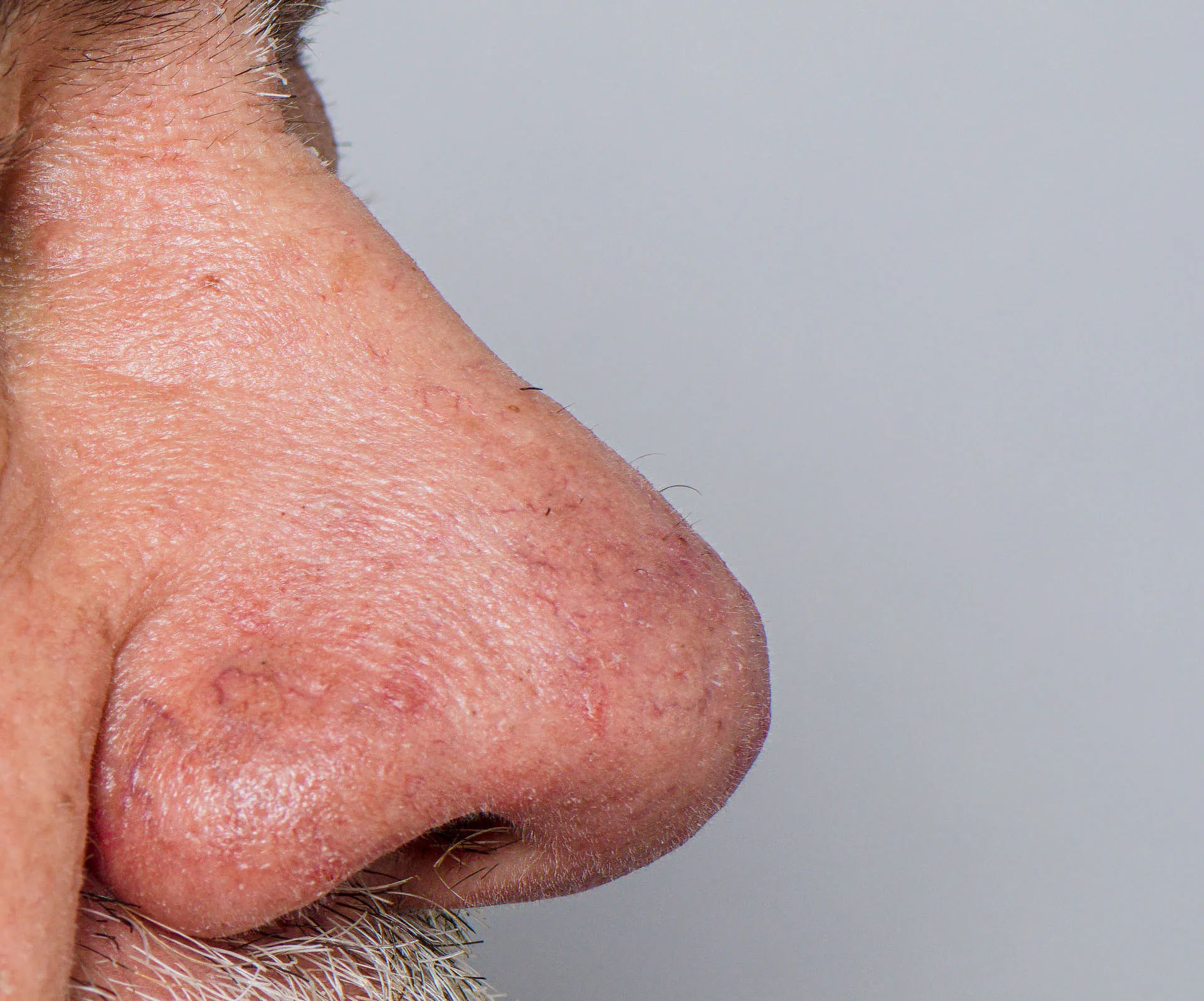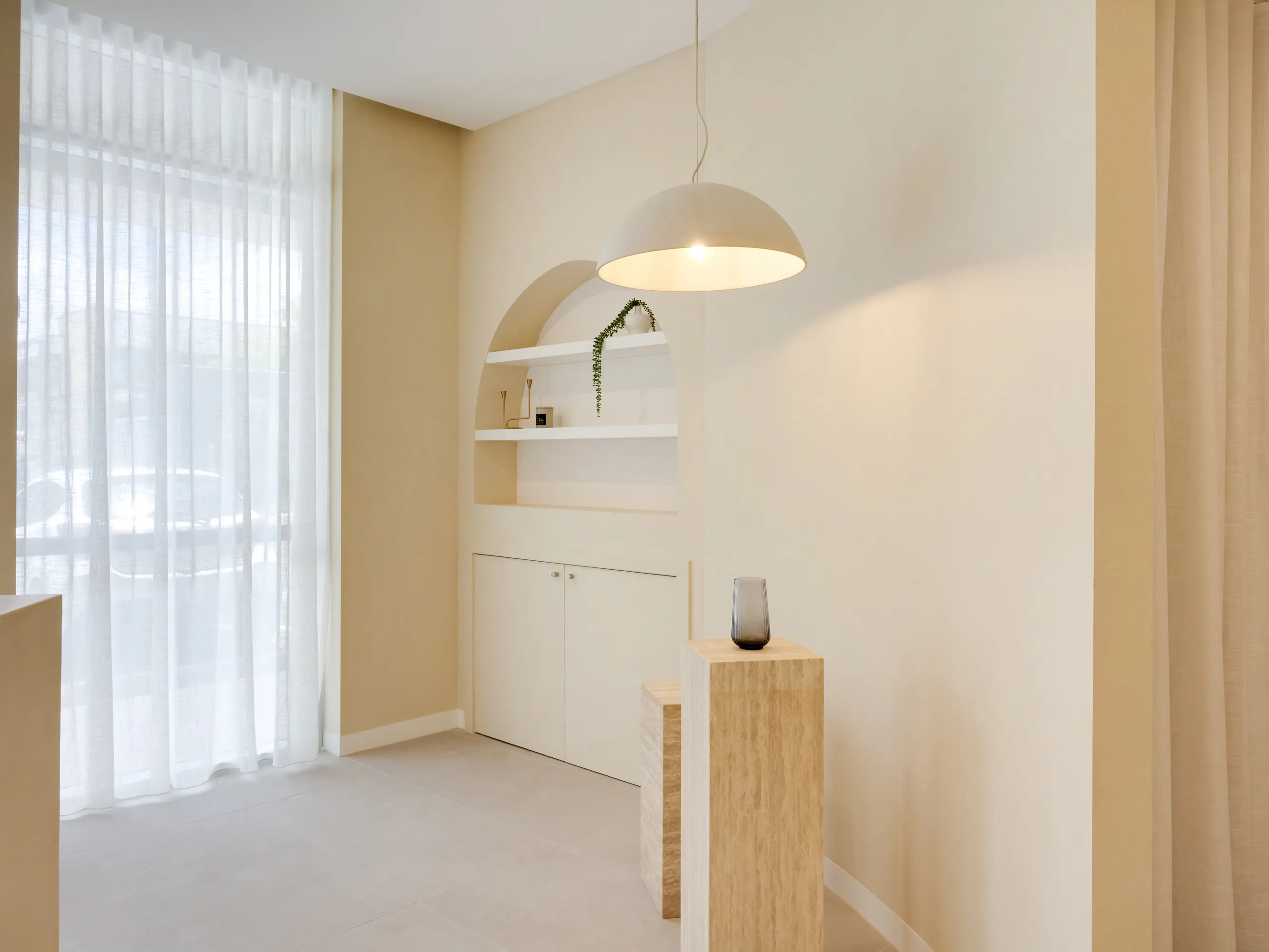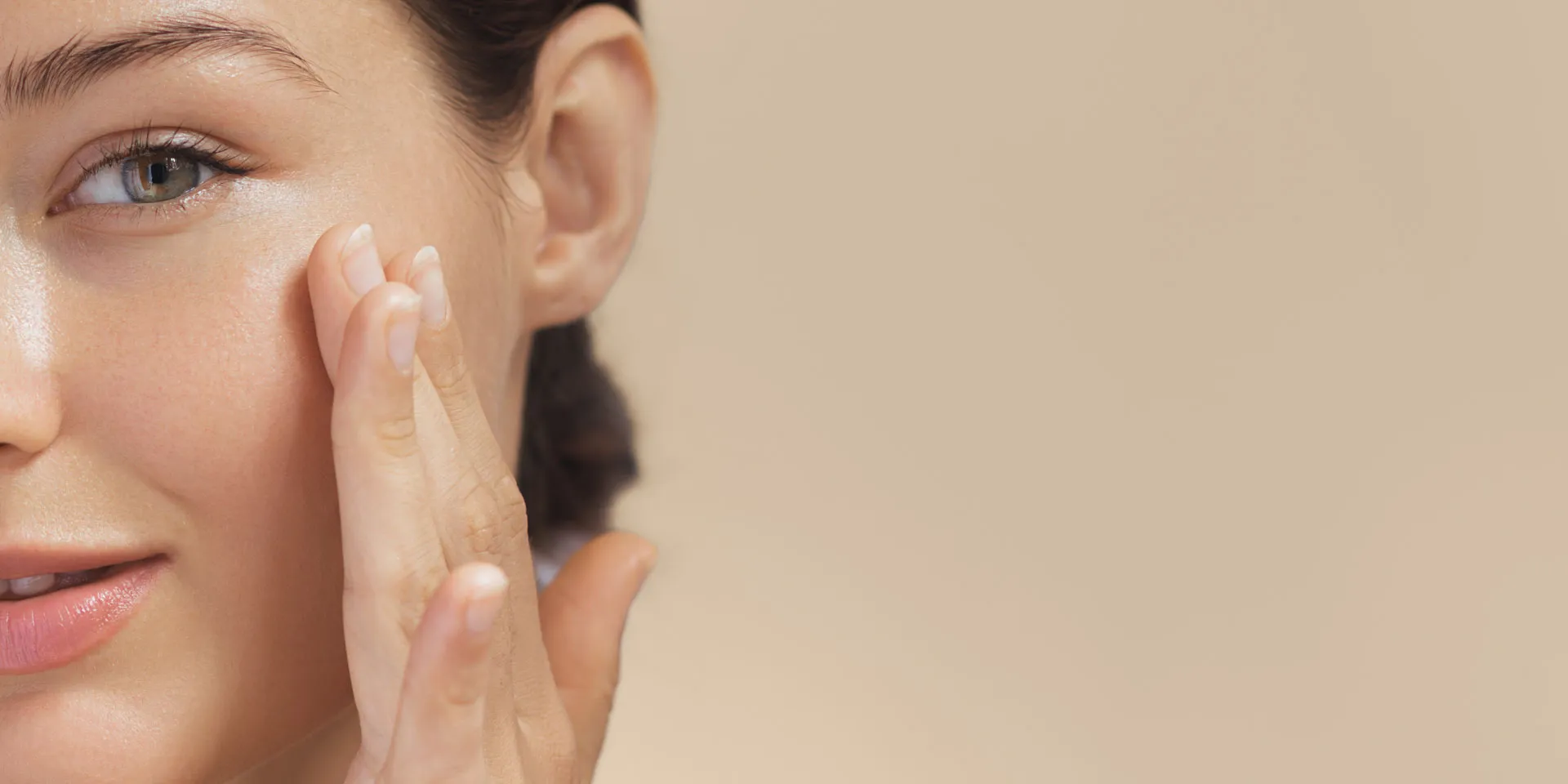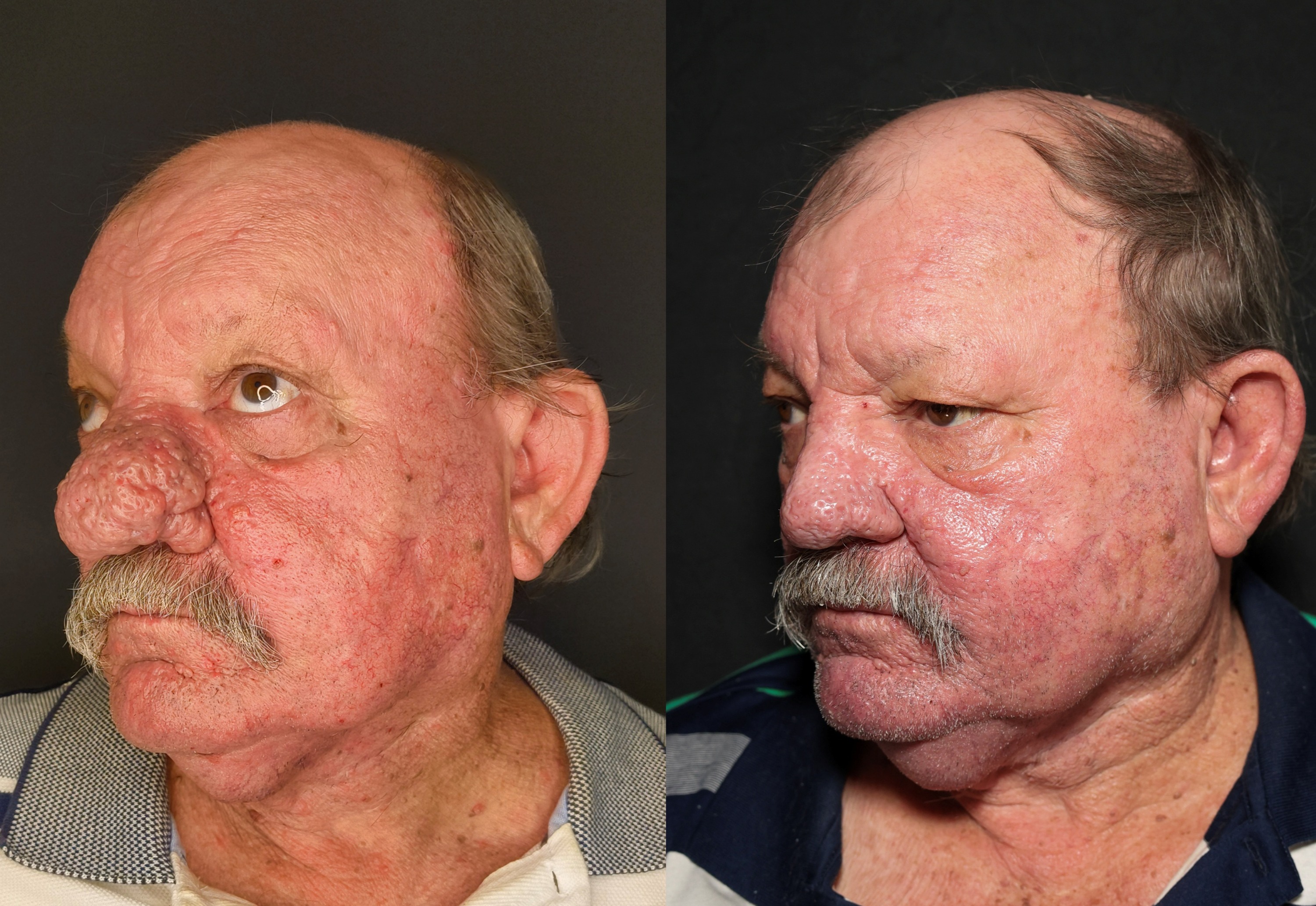Rhinophyma

Rhinophyma
What is rhinophyma?
Rhinophyma is a medical condition that causes the skin on the nose to thicken, often resulting in a larger, bulbous appearance. It’s a common concern for men in their 40s, 50s, and 60s, but many are unaware that it can be effectively treated. While it may seem like a cosmetic issue, it’s actually a medical condition that can impact both your appearance and your confidence.
At our clinic, we focus on reconstructive dermatology, not cosmetic procedures. This treatment is designed to restore the nose to its natural shape and improve both the look and function. In some cases, rhinophyma can also affect breathing, as the thickened tissue can block the nasal sidewalls.
Treatment can help alleviate these issues as well.With Medicare rebates available, this isn’t just about enhancing appearance — it’s about providing medically necessary care that improves quality of life. Our goal is to offer men a safe, professional, and medically-focused solution that helps restore their skin and confidence.
Why rhinophyma needs specialist care
Rhinophyma is a progressive skin condition that requires specialist care to manage effectively. Left untreated, it can lead to thickened, uneven skin on the nose, which becomes more difficult to address over time.
Expert diagnosis & treatment
Our dermatologists specialise in diagnosing rhinophyma and creating treatment plans that address the underlying skin changes.
Advanced laser technology
We use precise lasers to reduce skin thickening and restore a smoother appearance with minimal downtime.
Minimising further progression
Rhinophyma is a condition that can worsen over time, but with the right specialist care, we can slow its progression and prevent it from affecting your appearance any more.

Living with rhinophyma, what you can expect
Rhinophyma can affect more than just your skin—it can have an impact on your confidence. We understand the challenges that come with the condition, and we’re here to support you through every step of your treatment.

Our most commonly asked questions
Rhinophyma is often linked to rosacea, a condition that causes redness and visible blood vessels on the face. It’s typically caused by a combination of genetics, inflammation, and environmental triggers like sun exposure or certain medications.
Yes, early-stage rhinophyma can often be treated with advanced lasers that target the thickened skin and reduce redness. Surgical intervention is typically reserved for more advanced cases where the nose shape has changed significantly.
Results can be seen after just one treatment, but multiple sessions may be required, especially for more severe cases. Full results typically appear over several months as the skin heals and improves.
Downtime is minimal. You may experience redness or mild swelling for a few hours to a day after treatment, but most patients return to their normal activities immediately.
While treatment can significantly improve the condition and prevent further progression, rhinophyma can return over time, especially if not managed properly. Ongoing care and lifestyle adjustments, such as sun protection, can help maintain results.

Ready to take the next step in your skincare?
Whether it’s pigmentation, scarring, rosacea or skin cancer, we’ll provide a clear diagnosis and a treatment plan tailored to your skin’s needs. Call us today or book a consultation to start your specialist care.


